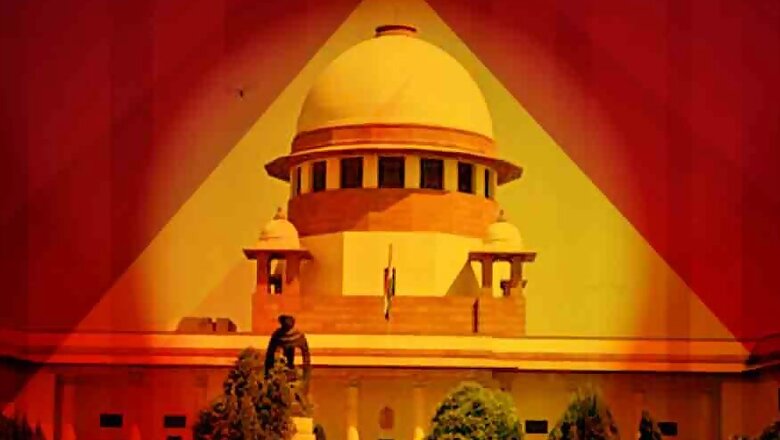
views
New Delhi: A nine-judge bench of the Supreme Court on Monday commenced hearing to deliberate upon issues relating to scope of freedom of religion and whether a person who does not belong to a particular faith can file a PIL questioning the religious practice of another religion.
The Constitution bench headed by Chief Justice S A Bobde has framed seven legal questions pertaining to fundamental rights on religion and their interplay with faith. It will evolve a judicial policy to deal with them.
Solicitor General Tushar Mehta, appearing for the Centre, opened the argument by referring to various apex court judgments on fundamental rights to practice and propagate religion under the Constitution and said government and the court have authority to regulate secular part of the religion.
In matters relating to "public order, morality and health" the law can be made by the state, Mehta told the bench also comprising justices R Banumathi, Ashok Bhushan, L Nageswara Rao, M M Shantanagoudar, S A Nazeer, R Subhash Reddy, B R Gavai and Surya Kant.
Referring to Mehta's submission, the bench said there has been a practice of giving offerings in temples and this is religious activity. "But if the money is used for terrorism and for running casino or other activities, then this becomes the secular part of the religion," the bench said.
On February 10, the bench had framed seven questions, including as to whether "person not belonging to a religious denomination or religious group can question a practice of that religious denomination or religious group by filing a PIL".
"What is the interplay between rights of persons under Article 25 of the Constitution of India and rights of religious denomination under Article 26," read the second issue to be deliberated upon by the bench.
The third question is whether rights of a religious denomination under Article 26 are subject to other fundamental rights apart from public order, morality and health.
"What is the scope and extent of the word 'morality' under Articles 25 and 26 of Constitution and whether it is meant to include constitutional morality," read the fourth question.
The bench said it would also examine the "scope and extent of judicial review" with regard to a religious practice as referred under Article 25 of the Constitution.
"What is the meaning of expression 'sections of Hindus' occurring in Article 25 (2) (b) of the Constitution," read the sixth issue.
These issues have been framed afresh after a battery of lawyers had raised objections that the 5-judge constitution bench headed by the then Chief Justice Ranjan Gogoi on November 14, 2019 had framed vague and broad issues which cannot be decided without any facts of the particular case.
Besides the Sabarimala case, the verdict had also referred issues of entry of Muslim women into mosques and dargahs and of Parsi women, married to non-Parsi men, being barred from the holy fire place of an Agiary, to the larger bench.
The hearing on the matter will commence at 2:30 pm on Monday.












Comments
0 comment